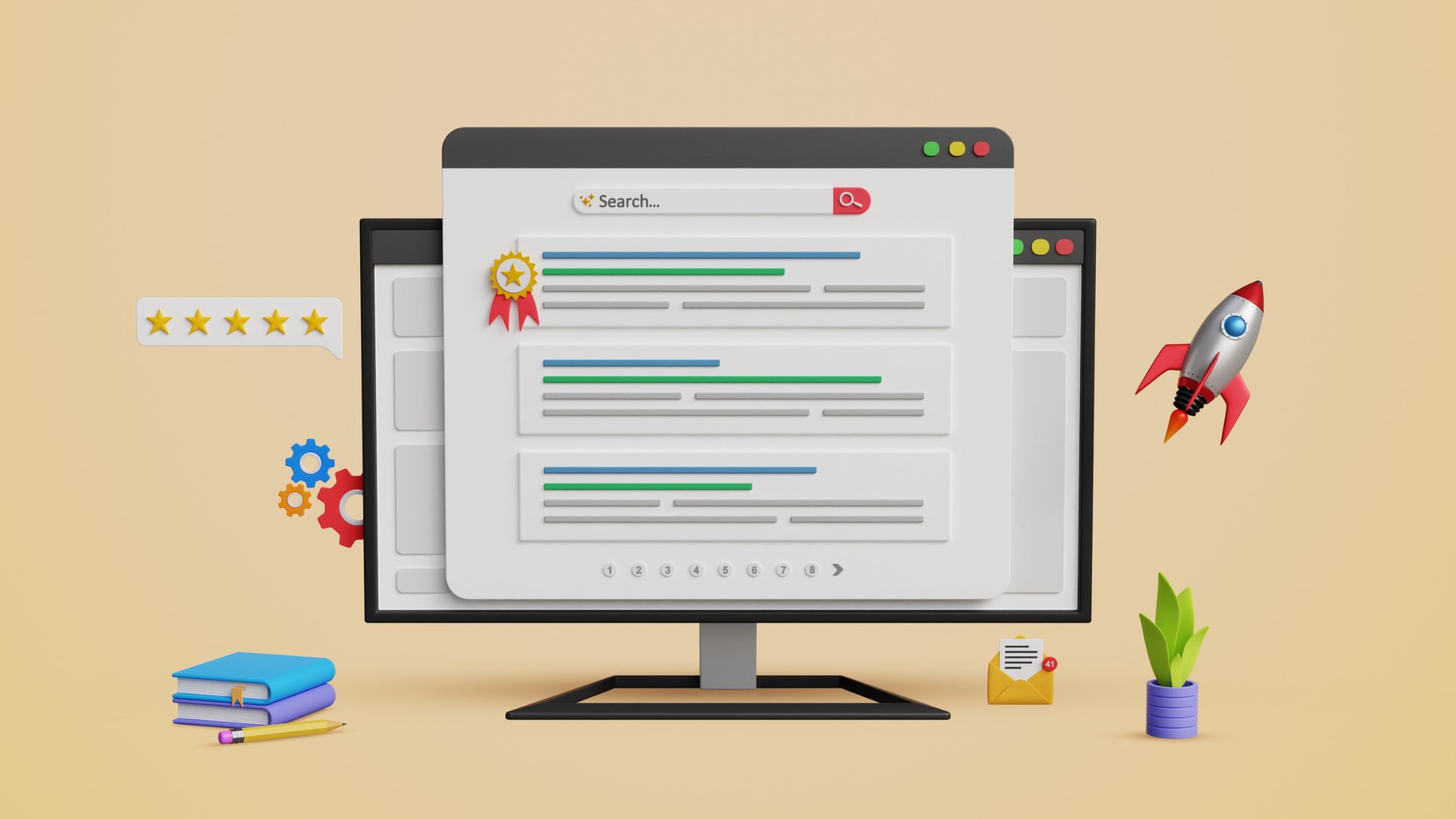In today's competitive job market, offering attractive employee benefits is crucial for attracting and retaining top talent in Singapore. As the workforce becomes more diverse and employee expectations evolve, especially post-pandemic, employers must adapt their benefits packages to meet changing needs.
This article explores essential employee benefits that Singaporean companies should consider, from mandatory provisions like CPF contributions to innovative perks that enhance work-life balance. By understanding and implementing these benefits effectively, employers can create a more appealing work environment and gain a competitive edge in the labour market.
Employee benefits are non-wage compensation packages offered by employers to attract and retain talent. These benefits go beyond the mandatory requirements set by Singapore's Employment Act and can significantly impact an employee's job satisfaction and loyalty.
According to a study, over 50% of employees would be more loyal to a company offering better benefits. These perks typically fall into four categories:
In Singapore, popular benefits include dental cover, gym memberships, and flexible work arrangements. Employers spend an average of $498 per employee per benefit, with hospitalisation being the most expensive at $900.
To create an effective benefits package, employers should:
By offering a comprehensive benefits package, employers can improve employee satisfaction, productivity, and loyalty, making it easier to attract and retain top talent in Singapore's competitive job market.
In Singapore's competitive job market, offering comprehensive employee benefits is crucial for attracting and retaining top talent. As a forward-thinking employer, you should recognise that benefits go beyond mere perks; they're essential for fostering a motivated and productive workforce.
Studies show that well-designed benefit packages can significantly boost employee satisfaction and loyalty. By providing health insurance, wellness programmes, and flexible working arrangements, you demonstrate a commitment to your staff's well-being. This not only improves morale but can also lead to increased productivity and reduced turnover rates.
Moreover, benefits play a vital role in supporting work-life balance. Offering generous leave policies and flexible hours can help employees manage personal responsibilities more effectively. This is particularly important in Singapore's fast-paced work environment, where burnout is a growing concern.
Remember, a competitive salary alone isn't enough in today's market. Job seekers increasingly prioritise comprehensive benefits packages when considering employment opportunities. By investing in your employees' welfare through thoughtful benefits, you're not just supporting your staff—you're investing in your company's future success.
The Employment Act in Singapore outlines essential benefits that employers must provide to their employees. Central Provident Fund (CPF) contributions are a cornerstone of this Act, supporting employees' retirement and healthcare needs. Employers are required to contribute approximately 17% of an employee's basic salary to the CPF.
Paid leave entitlements are another crucial aspect of the Act. Employees are entitled to:
The Act also mandates parental leave provisions. Mothers are entitled to 16 weeks of government-paid maternity leave (or 12 weeks, depending on specific criteria), whilst fathers receive 2 weeks of paternity leave. The government plans to extend paternity leave to 4 weeks in the future.
Work injury compensation is another vital benefit, ensuring employees receive compensation for medical expenses, leave wages, and potential permanent incapacity due to work-related injuries or illnesses.
Comprehensive health insurance is a top priority for Singapore's workforce, providing financial security and supporting overall well-being. According to a recent study, this benefit is essential for attracting and retaining talent. Employers can offer medical, dental, and optical coverage to ensure employees' health needs are met. Additionally, wellness programmes like gym memberships and mental health support are gaining recognition as highly demanded benefits, reflecting a shift in workplace culture where mental well-being is considered equally important to physical health.
Flexible work options have become a critical benefit as employees seek better work-life balance. This can include remote work, flexible hours, or hybrid models. Employers can offer allowances for home office equipment and expenses to support these arrangements. Job sharing and part-time opportunities can also attract a wider talent pool, catering to diverse employee needs and preferences.
Opportunities for professional development and career advancement are highly valued by employees. Employers can offer subsidies for further education, certifications, and professional development to enhance employee skills and career growth. Implementing mentorship programmes can foster growth and skills enhancement, making the workplace more attractive to ambitious professionals.
The Central Provident Fund (CPF) is a cornerstone of financial security for Singaporean employees. Beyond mandatory contributions, employers can offer additional retirement plans, insurance options, bonuses, or stock options to enhance financial security. These benefits demonstrate a long-term commitment to employees' well-being and can significantly boost job satisfaction and loyalty.
Paid time off, including annual leave and public holidays, is crucial for employee satisfaction. Implementing shutdown periods during major holidays allows employees to fully disconnect and recharge. Additional perks like transport allowances, team-building activities, and flexible leave policies can further enhance work-life balance and create a positive work environment.
Research shows that 79% of employees value intangible, non-monetary benefits such as positive workplace relationships, convenient work locations, and increased autonomy. Employers should focus on creating a workplace culture of trust and transparency, empowering employees to communicate their needs effectively.
By implementing these work-life balance initiatives, companies can improve employee satisfaction, reduce absenteeism, and enhance their corporate image, ultimately contributing to Singapore's economic growth.
To attract top Singaporean talent, employers should offer competitive salaries and comprehensive benefits packages. The Overseas Network and Expertise (ONE) Pass, a new five-year work visa, sets a high bar with a minimum monthly salary threshold of SGD 30,000. While not all positions require such high compensation, this benchmark underscores the importance of attractive remuneration in Singapore's competitive job market.
Investing in employees' growth is crucial. The SkillsFuture Credit programme provides SGD 500 grants to locals for training, resulting in 63% of the workforce being considered digitally skilled. Employers can complement this by offering in-house training, mentorship programmes, and access to online learning platforms. These initiatives not only attract talent but also foster loyalty and engagement.
Singaporean professionals increasingly value work-life balance. Offering flexible working arrangements, such as remote work options or flexible hours, can be a significant draw. Additionally, providing generous leave policies and organising team-building activities can enhance workplace culture and employee satisfaction. These benefits contribute to Singapore's high standard of living, making it an attractive destination for top talent.
To create an effective employee benefits package, start by complying with mandatory policies such as Central Provident Fund (CPF) contributions and parental leave. Beyond these, offer a mix of work environment, health and wellness, financial security, and lifestyle benefits to cater to diverse employee needs.
Consider providing popular benefits like dental cover, gym memberships, and flexible working arrangements. Implement a flexible and customisable benefits plan to accommodate individual preferences. This approach can include options like buying or selling annual leave days.
Regularly survey your employees to understand their specific needs and preferences. Use this feedback to tailor your benefits package accordingly. Ensure clear communication of available benefits through multiple channels to maximise employee awareness and uptake.
Evaluate the effectiveness of your benefits plan regularly to ensure it remains competitive and relevant. Consider using an Employer of Record (EOR) service to streamline benefits management, especially if you have global or remote employees. This can help ensure compliance with local labour laws while allowing you to focus on business growth.
In today's competitive job market, employees in Singapore are looking beyond just salary when considering job offers. Flexible work arrangements top the list, with 72% of professionals preferring hybrid working options. This desire for flexibility extends to work hours and remote work allowances, allowing for a better work-life balance.
Health and wellness benefits are increasingly important. Dental cover and gym memberships are among the most sought-after perks not commonly offered. Employers are also focusing on mental health support and wellness programmes to promote overall well-being.
Professional development opportunities are highly valued. Employees appreciate training allowances and career development programmes that foster growth and enhance skills. Additionally, financial benefits like the Annual Wage Supplement (AWS) or bonus, and options to buy or sell annual leave are attractive to many workers.
Lastly, retirement benefits through the Central Provident Fund (CPF) remain a cornerstone of employee benefits in Singapore, providing long-term financial security that employees greatly appreciate.
The cost of employee benefits in Singapore varies depending on the type and extent of benefits offered. According to the 2022 Employee Benefits Trend Report, employers spend an average of S$498 per employee per benefit. This figure encompasses a range of benefits, with some costing significantly more than others.
For instance, hospitalisation benefits average S$900 per employee, whilst Traditional Chinese Medicine benefits cost around S$286. Other common benefits fall between these figures, with wellness programmes averaging S$616 and specialist care at S$565 per employee.
It's important to note that some benefits are mandatory. The Central Provident Fund (CPF) is a significant cost, with employers contributing 17% of an employee's basic salary for those aged 55 or below. Additional costs may include annual leave, sick leave, and parental leave entitlements.
Many companies offer supplementary benefits to attract and retain talent. These can include flexible working arrangements, stock options, and career development opportunities. Whilst these benefits add to overall costs, they play a crucial role in maintaining a competitive edge in Singapore's dynamic job market.
To attract and retain top talent in Singapore's competitive job market, implementing an effective employee benefits programme is crucial. Start by conducting a needs assessment to understand your employees' priorities and tailor your benefits package accordingly. Focus on offering a mix of mandatory and optional benefits that cater to your workforce's diverse needs.
Ensure compliance with Singapore's mandatory benefits, including Central Provident Fund (CPF) contributions, medical care, and maternity/paternity leave. Consider supplementing these with popular optional benefits such as:
Leverage technology to streamline benefit administration and reduce costs. Negotiate with providers to secure competitive rates for insurance and other benefits. Regularly monitor and adjust your programme based on employee feedback and changing needs to maintain its effectiveness.
Remember, a well-designed benefits package can significantly enhance your employee value proposition and foster employee satisfaction, engagement, and loyalty. By investing in your employees' well-being and growth, you demonstrate your commitment to their success, which can lead to improved retention rates and overall organisational performance.
In today's competitive job market, offering a comprehensive employee benefits package is crucial for attracting and retaining top talent in Singapore. By providing a mix of mandatory benefits, health and wellness programmes, flexible working arrangements, career development opportunities, and work-life balance initiatives, employers can create a positive and supportive work environment. Remember, the most effective benefits packages are those that align with your company's values and meet the diverse needs of your workforce.
Regularly reviewing and updating your offerings will ensure you stay competitive and continue to attract the best talent. Ready to enhance your employee benefits strategy? Start your journey with FastJobs today!

In Singapore’s job market, portals offer fast access while agencies provide tailored matchmaking.
Read more
Retail in SG is rising! Wage growth & skills training create new career paths. Explore jobs with FastJobs.sg.
Read more
Hiring faster starts here—Job Bump boosts your listing by 30%+ without needing a repost.
Read more